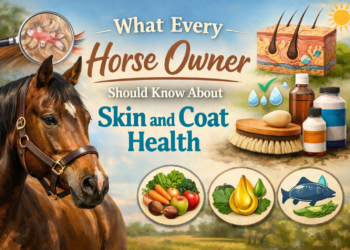Axolotls are fascinating creatures that are native to Mexico. These amphibians are known for their unique ability to regenerate limbs and other body parts, making them a popular choice for research and study. However, when it comes to their diet, there are many questions that remain unanswered. One of the most common questions people ask is whether axolotls can eat minnows.
The answer to this question is not straightforward, as it depends on a number of factors. For example, the size of the axolotl and the size of the minnows can play a role in whether or not they can be safely consumed. Additionally, the nutritional needs of axolotls can vary depending on their age and overall health. In this article, we will explore the topic of whether axolotls can eat minnows, taking into account all of the relevant factors that need to be considered.
If you are a pet owner or researcher who is interested in learning more about the dietary habits of axolotls, this article will provide you with valuable information that you can use to make informed decisions about what to feed your axolotls. We will examine the nutritional value of minnows, the potential risks associated with feeding them to axolotls, and provide some tips on how to ensure that your axolotls are getting the nutrients they need to thrive.
What are Axolotls

Axolotls are a type of salamander that are native to Mexico. They are also known as Mexican walking fish and are popular among pet owners due to their unique appearance and low maintenance care. Axolotls have a distinctive feature of retaining their larval form throughout their life, which means they never fully develop into a mature adult.
Axolotls have a variety of colors, including black, white, brown, and gold. They have four short legs, a long tail, and feathery external gills that protrude from the back of their heads. Axolotls are fully aquatic and require a tank with clean water and a suitable temperature range to thrive.
In the wild, axolotls primarily feed on small aquatic animals such as insects, crustaceans, and small fish. However, in captivity, they can be fed a diet of commercially available axolotl pellets, earthworms, and other small aquatic creatures. It is important to note that axolotls have a slow metabolism and should not be overfed to prevent obesity and other health issues.
Overall, axolotls are fascinating creatures that make great pets for those willing to provide the proper care and environment.
Diet of Axolotls
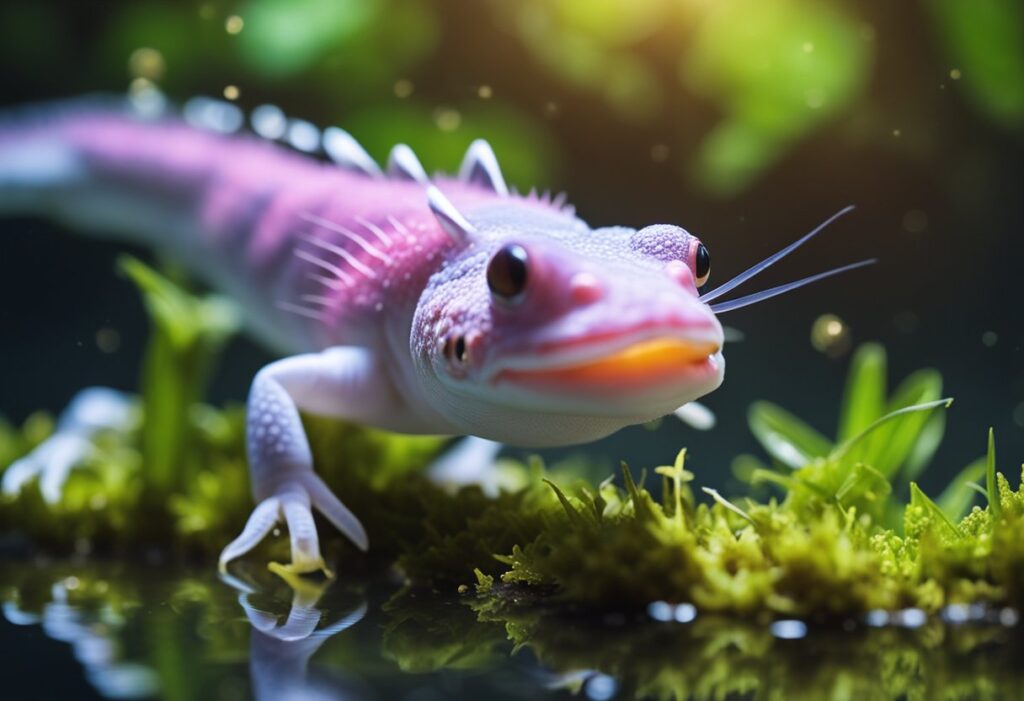
Axolotls are carnivores, which means that they primarily eat meat. They are known to eat a variety of foods in the wild, including insects, worms, small fish, and crustaceans.
In captivity, axolotls can be fed a variety of foods, including pellets, frozen or live bloodworms, brine shrimp, and earthworms. It is important to ensure that the food is appropriate for the size of the axolotl, as well as the age and health of the animal.
While axolotls can eat small fish like minnows, it is important to note that this should not be their primary source of food. Feeding axolotls a diet that is too high in fat or protein can lead to health problems, such as obesity or liver disease.
It is recommended to vary the diet of axolotls to ensure that they receive all the necessary nutrients. A balanced diet can help keep axolotls healthy and thriving.
Can Axolotls Eat Minnows
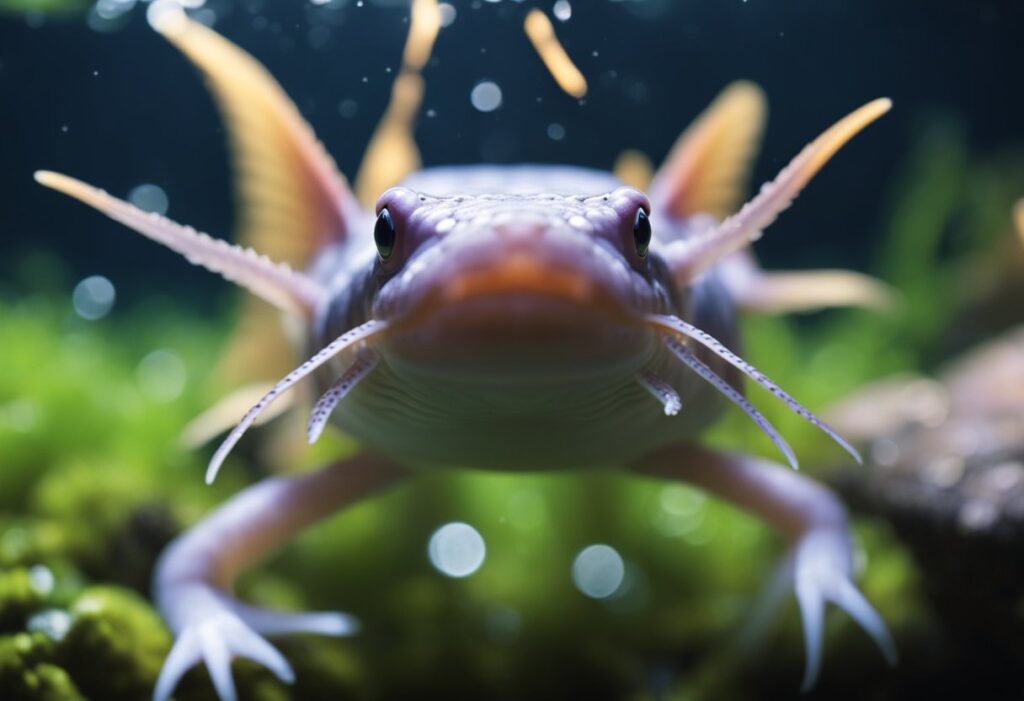
Axolotls are carnivorous and eat a variety of small aquatic animals in the wild. They are known to eat worms, insects, small fish, and crustaceans. Therefore, it is possible for axolotls to eat minnows.
However, it is important to note that not all axolotls have the same dietary preferences. Some axolotls may not be interested in eating minnows, while others may find them to be a tasty treat.
It is also important to consider the size of the minnows in relation to the size of the axolotl. Axolotls have small mouths and may have difficulty eating larger minnows. Additionally, minnows may contain bones that could potentially harm the axolotl if not properly digested.
Therefore, if you choose to feed your axolotl minnows, it is important to ensure that the minnows are appropriately sized and that they are thoroughly gutted to remove any bones or other indigestible parts. It is also recommended to vary your axolotl’s diet and not rely solely on minnows as a food source.
Impact of Minnows on Axolotls’ Health
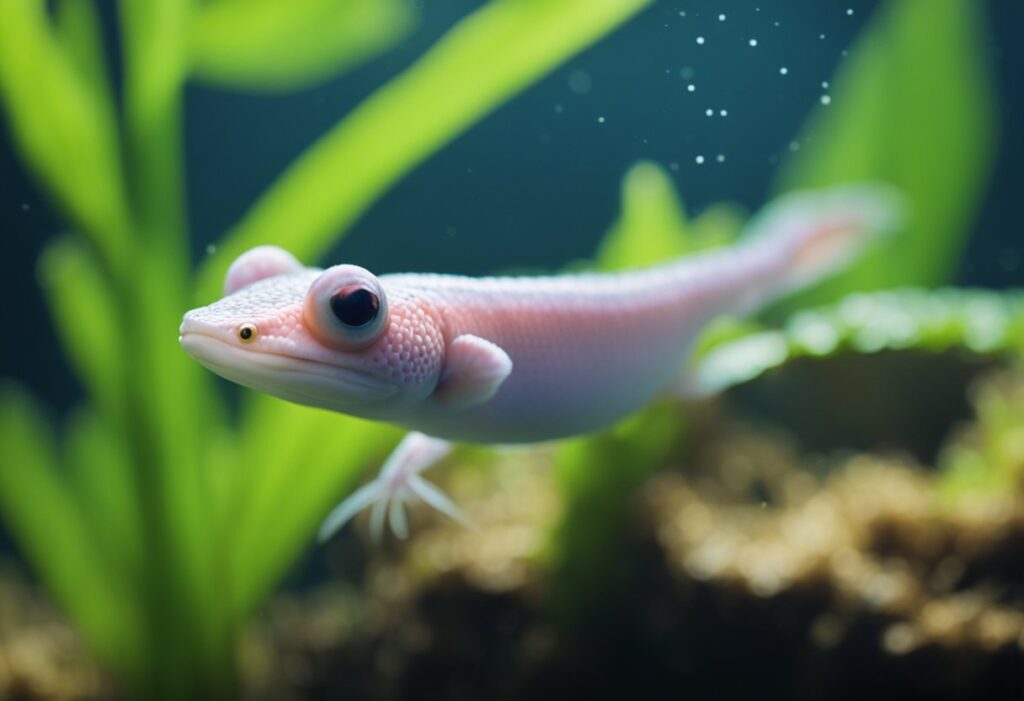
When it comes to the diet of axolotls, many people wonder if they can eat minnows. While it is true that axolotls are carnivorous and can eat small fish, including minnows, there are some important factors to consider before feeding them to your axolotl.
Firstly, it is important to note that minnows are not a natural part of an axolotl’s diet. In the wild, axolotls primarily feed on small aquatic invertebrates, such as worms and insect larvae. While they may occasionally consume small fish, it is not a regular part of their diet.
Feeding your axolotl too many minnows can have negative impacts on their health. Minnows are high in fat and protein, which can lead to obesity and other health problems in axolotls if they are overfed. Additionally, minnows may contain parasites or diseases that can be harmful to axolotls if they are not properly quarantined and treated before feeding.
If you do choose to feed your axolotl minnows, it is important to do so in moderation and to ensure that the minnows are of high quality and free from any potential health risks. It is also important to provide a balanced diet that includes a variety of other foods, such as earthworms, shrimp, and pellets specifically formulated for axolotls.
In summary, while axolotls can eat minnows, it is important to be mindful of the potential health risks and to feed them in moderation as part of a balanced diet.
Alternative Foods for Axolotls
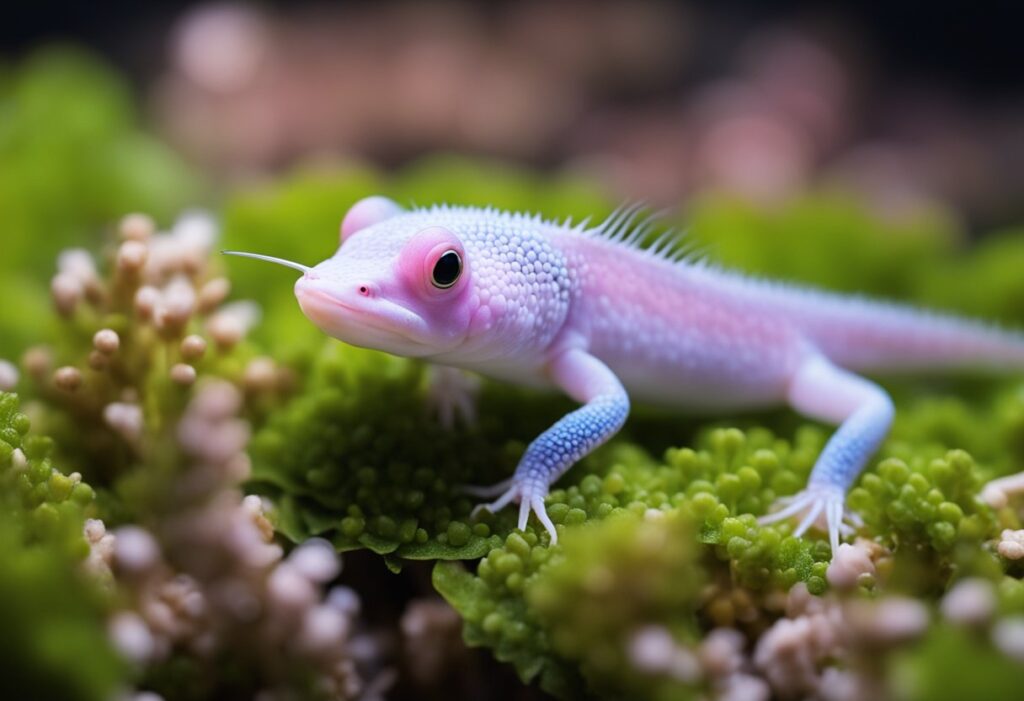
While axolotls primarily feed on live prey such as worms, insects, and small fish, there are alternative foods that can be given to them. Here are some options:
- Pellets: Commercially available pellets specifically made for axolotls are a convenient and balanced option. However, it’s important to ensure that the pellets are of high quality and contain all the necessary nutrients.
- Shrimp: Frozen or fresh shrimp can be a tasty and nutritious treat for axolotls. It’s important to remove any shells or tails before feeding.
- Beef heart: A popular alternative food for axolotls, beef heart is high in protein and can be fed in small amounts as a supplement to their regular diet.
- Bloodworms: Frozen or live bloodworms can be a good source of protein for axolotls. However, they should be fed in moderation as they can be high in fat.
It’s important to note that while these alternative foods can be given to axolotls, they should not replace their primary diet of live prey. It’s also important to avoid feeding them any food that is too large or could potentially cause choking. As always, it’s best to consult with a veterinarian or experienced axolotl owner for advice on feeding.
Feeding Techniques for Axolotls
When it comes to feeding axolotls, it’s important to keep in mind that they are carnivorous and require a diet that is high in protein. While they can eat a variety of foods, including small fish like minnows, it’s important to ensure that the food you are feeding them is appropriate for their size and age.
One technique for feeding axolotls is to use a feeding dish or container. This can help prevent uneaten food from getting stuck in the substrate and potentially causing water quality issues. Additionally, feeding in a separate container can help prevent aggression between multiple axolotls that may be housed together.
Another technique is to offer live food, such as small fish or worms. While this can be more stimulating for the axolotl, it’s important to ensure that the live food is appropriate in size and not too large for the axolotl to consume. It’s also important to avoid feeding wild-caught prey, as they may carry diseases or parasites that could harm the axolotl.
Finally, it’s important to avoid overfeeding axolotls, as this can lead to obesity and other health issues. A general guideline is to feed them once a day, or every other day for adult axolotls. It’s also important to remove any uneaten food after a few hours to prevent it from decomposing and affecting water quality.
Understanding Axolotls’ Eating Behavior
Axolotls are carnivorous and consume a variety of small aquatic animals, including insects, worms, and small fish. However, whether or not they can eat minnows depends on the size of the axolotl and the size of the minnows.
Axolotls have a unique feeding behavior where they suck in water and food through their mouth, which creates a vacuum that pulls the food into their throat. They do not have teeth but instead have a rough tongue that helps them grip and swallow their prey.
It is essential to consider the size of the axolotl when feeding them. Young axolotls are smaller and require smaller prey, while larger axolotls can consume larger prey. If the minnows are too large for the axolotl, it can lead to choking or digestive problems.
In addition to size, it is crucial to consider the nutritional value of the minnows. Axolotls require a balanced diet of protein, fat, and vitamins to maintain their health. While minnows can be a good source of protein, they may not provide the necessary nutrients in the right proportions.
Overall, axolotls can eat minnows, but it is important to consider the size and nutritional value of the prey before feeding them. It is always best to consult with a veterinarian or an expert in axolotl care to ensure that their diet is appropriate and healthy.
Frequently Asked Questions
Can axolotls eat live fish?
Yes, axolotls can eat live fish. In fact, live fish can be a great source of nutrition for axolotls, as they are natural predators and enjoy hunting their prey.
What types of live fish are safe for axolotls to eat?
Axolotls can eat a variety of live fish, but it is important to choose fish that are safe and healthy for them. Good options include small fish like guppies, mosquito fish, and minnows.
Are minnows a good choice for axolotl food?
Minnows can be a good choice for axolotl food, as they are small and easy to digest. However, it is important to make sure that the minnows are healthy and disease-free before feeding them to your axolotl.
What are some alternative live food options for axolotls?
In addition to live fish, axolotls can also eat live or frozen bloodworms, brine shrimp, and blackworms. These foods can provide a variety of nutrients and help keep your axolotl healthy.
Can axolotls coexist with other fish?
Axolotls are known to be aggressive towards other fish, so it is generally not recommended to keep them with other species. However, some keepers have had success keeping axolotls with larger, non-aggressive fish like goldfish or koi.
What precautions should I take when feeding live fish to axolotls?
When feeding live fish to axolotls, it is important to make sure that the fish are healthy and disease-free. You should also avoid overfeeding your axolotl, as this can lead to health problems. Finally, make sure to remove any uneaten fish from the tank to prevent water quality issues.


